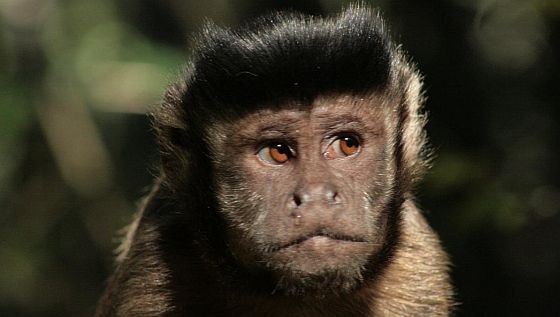
Jalees Rehman writes: When we observe an interaction between two other human beings (Person A and Person B), we sometimes draw conclusions about the personality traits or character of these two individuals. For example, if we see that Person A is being rude to Person B, we may be less likely to trust Person A, even though we are merely “third-party” evaluators. i.e. not directly involved in the interaction. Multiple studies with humans have already documented such third-party social evaluation, which can even occur among children. A study published in 2010 showed that 3-year old children were less likely to help adults who had previously acted in a harmful manner in front of the kids, i.e. torn up a picture drawn by another adult in a staged experiment.
Do animals who observe humans also conduct such third-party social evaluations of humans? The recent study “Third-party social evaluation of humans by monkeys” published in Nature Communications by James Anderson and colleagues staged interactions with human actors in front of tufted capuchin monkeys (Cebus apella). The researchers found that the monkeys indeed evaluate humans after witnessing third-party interactions involving either helpful interventions or a failure to help fellow humans.
In front of each monkey, two actors performed either “helper” sessions or “non-helper” sessions. In the “helper” sessions, Actor A tried to get a toy out of a container and requested help from Actor B, who complied and helped out Actor A. In the “non-helper” sessions, Actor B refused to help. After the sessions, both actors offered a piece of food to the monkey. In the helper sessions, monkeys readily accepted food from both actors. On the other hand, monkeys in the non-helper sessions accepted food more frequently from actor A (the requester of help) than Actor B (the non-helper). [Continue reading…]

